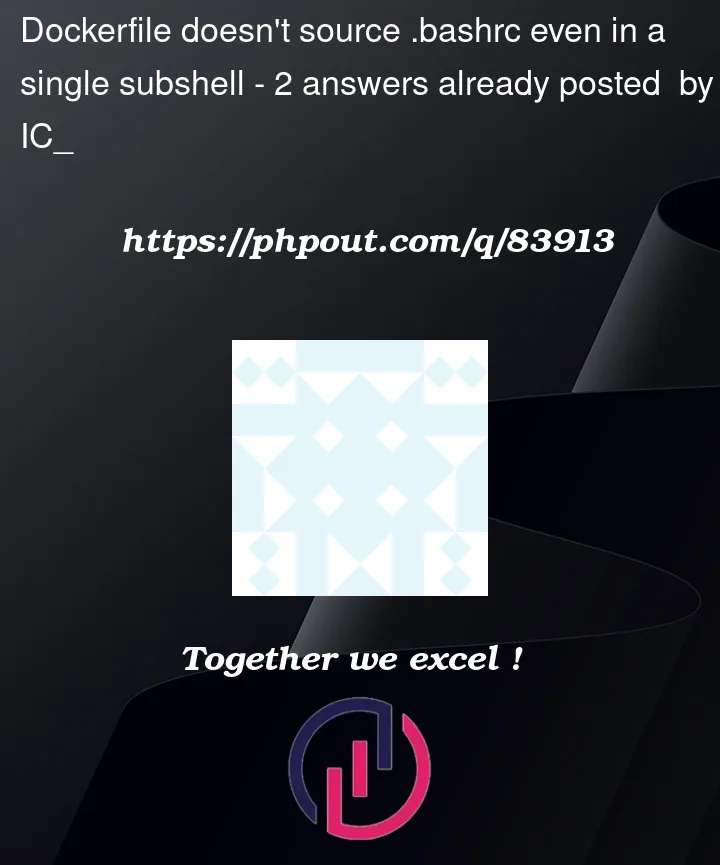I’m trying to source .bashrc but no luck
USER user
SHELL ["/bin/bash", "-c"]
RUN echo "export TEST_VAR=test" >> /home/user/.bashrc && tail /home/user/.bashrc && source /home/user/.bashrc && echo "1 "${TEST_VAR} 2" var" && exit 1
I expect that this RUN command print 1 "test" 2 but what i get is that
Step 13/40 : RUN echo "export TEST_VAR=test" >> /home/user/.bashrc && tail /home/user/.bashrc && source /home/user/.bashrc && echo "1 "${TEST_VAR}" 2" && exit 1
---> Running in b870d36e9dd0
# this, if it's already enabled in /etc/bash.bashrc and /etc/profile
# sources /etc/bash.bashrc).
if ! shopt -oq posix; then
if [ -f /usr/share/bash-completion/bash_completion ]; then
. /usr/share/bash-completion/bash_completion
elif [ -f /etc/bash_completion ]; then
. /etc/bash_completion
fi
fi
export TEST_VAR=test
1 "" 2
What’s wrong with handling shells in docker? I just wanted to source ~/.bashrc once and use all exposed variables in subsequent command below source call but it doesn’t even work in a single subshell joined with &&




2
Answers
Usually
~/.bashrccontains something similar to:That is very normal –
.bashrcis meant to be used in interactive sessions only. BecauseRUNis non-interactive, it just exits.Aaaanyway, I would recommend, if you want to only add environment variables, output them to
/etc/profile.dand. /etc/profile.Most paths in Docker don’t read shell dotfiles at all. You need to use other approaches to provide configuration to your application; for example, Dockerfile
ENVto set environment variables or an entrypoint wrapper script if you need things to be set up dynamically before starting the container.Let’s look specifically at a reduced form of your example:
Bash Startup Files in the GNU Bash manual lists out which dotfiles are read in which case. For the last line Docker combines the
SHELLandRUNlines to run the equivalent ofbut the
bashinstance is neither an interactive nor a login shell, so the only dotfile that’s automatically read is one named in a$BASH_ENVenvironment variable. (POSIXshdoesn’t specify anything about any shell dotfiles at all.)This further applies to the image’s default
CMD, which also will get run withsh -c(or the alternateSHELL) and it won’t read dotfiles. If theCMD(orENTRYPOINTorRUN) uses JSON-array syntax, it won’t invoke a shell at all, and again won’t read dotfiles.The only case where shell dotfiles will be read is if the main container command is an interactive shell, and this won’t typically be the common case.
This means you should almost never try to edit the
.bashrc,/etc/profile, or any similar files. If you need to set environment variables as in the example, use DockerfileENVinstead.